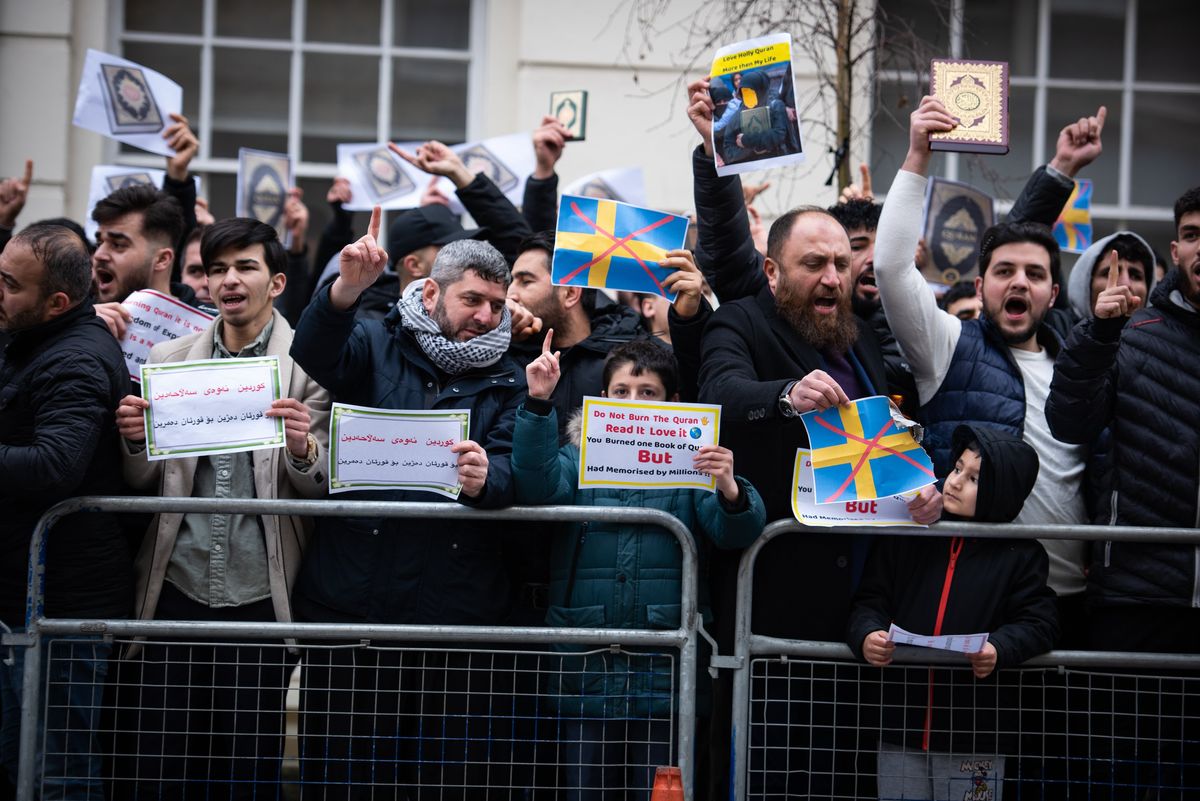Fresh out of Barnard College with a degree in political science, Riley is a writer and reporter for GZERO. When she isn’t writing about global politics, you can find her making GZERO’s crossword puzzles, conducting research on American politics, or persisting in her lifelong quest to learn French. Riley spends her time outside of work grilling, dancing, and wearing many hats (both literally and figuratively).
Quran burnings in Denmark and Sweden in recent weeks have angered Muslims around the world. These protests, usually by far-right extremists, tend to play out in front of embassies of Muslim-majority countries or other government buildings. In turn, Scandinavian leaders have been forced to explain that their hands are tied by their countries’ strict freedom of speech laws. But that may soon change.
Citing security and geopolitical concerns, these governments are now considering whether to ban protests that desecrate religious texts. Denmark’s foreign ministry said Sunday that it is looking at intervening when “other countries, cultures, and religions are being insulted, and where this could have significant negative consequences for Denmark." Sweden said it is considering a similar approach, and Prime Minister Ulf Kristersson has pointed to concerns that the protests could incite terrorism.
Both countries want to avoid political backlash in Muslim-majority countries, of course, but Sweden has another big incentive: NATO membership. You’ll remember that when Sweden announced it wanted to join NATO, its bid was initially held up by Turkey’s Muslim President Recep Tayyip Erdogan, who had veto power thanks to NATO’s requirement of unanimous consent. Quran burnings didn’t help Sweden’s case. But then Erdogan changed his mind last month, announcing that he would approve the country’s accession. The US responded by promising to send Erdogan some F-16 fighter jets he’s been wanting. But Sweden’s membership is still not a done deal; Turkey’s parliament isn’t scheduled to sign off on it until October.
We’ll be watching to see whether Denmark and Sweden make legal changes regarding religious protests – and in Sweden’s case, whether it’s fast enough for Turkish lawmakers. Other European countries with Muslim-minority populations will also be keeping a close eye on whether a precedent is set by the Nordic countries.
So far, however, the move isn’t having the desired effect: Protesters in Stockholm responded to the announcements on Monday by – you guessed it – burning pages torn from Islam’s holy book outside the Swedish parliament.






